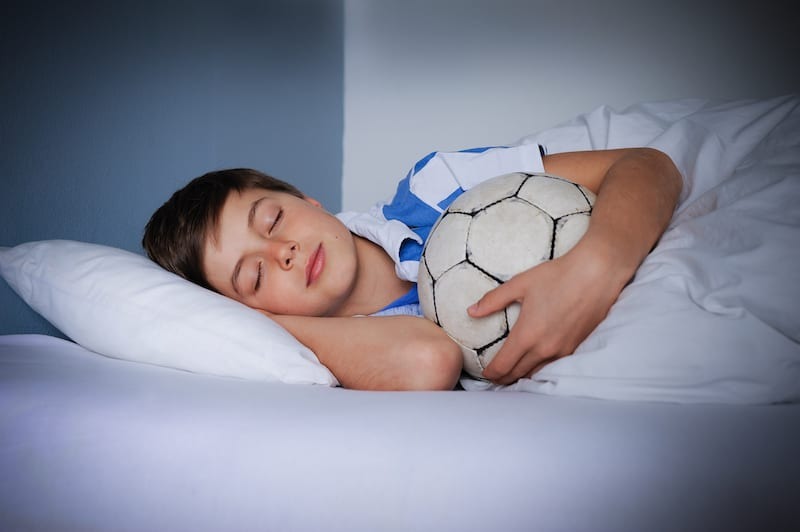Fitness and Sports
6 min read
Rest to Rise: The Vital Role of Sleep in Athletic Performance
October 08 , 2025
By Sharib

In the pursuit of peak performance, athletes focus intensely on training regimens, nutrition plans, and mental toughness. But there’s another, often overlooked factor that plays a foundational role in physical performance and recovery: sleep.
More than just rest, sleep is a dynamic process that influences nearly every system in the body. For athletes, it can mean the difference between a personal best and a disappointing finish. Whether you’re an elite competitor or a weekend warrior, understanding the role of sleep in athletic performance can help unlock new levels of strength, endurance, and focus.
Why Sleep Matters for Athletes
Sleep is not just a time-out from training—it's an integral part of it. During sleep, the body undergoes critical processes that repair tissue, consolidate memory, restore energy, and regulate hormones. For athletes, these processes translate into:
- Faster recovery
- Improved muscle growth
- Better focus and reaction time
- Stronger immunity
- Enhanced performance
Cutting corners on sleep disrupts these benefits, leading to increased fatigue, poor decision-making, slower reaction times, and greater risk of injury.
The Science of Sleep and Recovery
Sleep occurs in cycles made up of different stages—light sleep, deep sleep (slow-wave sleep), and REM (rapid eye movement) sleep. Each of these stages contributes uniquely to athletic recovery.
- Deep Sleep is the most physically restorative. It’s when the body releases growth hormone, crucial for muscle repair and recovery. This is also the time when tissues regenerate and immune functions are strengthened.
- REM Sleep plays a key role in cognitive recovery. It supports memory consolidation, emotional regulation, and learning—all vital for sports that require strategy and coordination.
Athletes who consistently get enough quality sleep experience more efficient recovery between workouts, making it easier to stick to high-performance training plans.
Impact of Sleep on Performance Metrics
Multiple studies have shown a direct correlation between sleep and performance across a range of sports.
- Endurance: Sleep deprivation reduces time to exhaustion and VO2 max levels. Runners, cyclists, and swimmers often notice lower stamina when sleep-deprived.
- Accuracy: In sports like basketball, soccer, or tennis, even minor sleep loss can reduce precision. One Stanford study found that basketball players who increased sleep duration improved their free throw and 3-point shooting percentages.
- Reaction Time: Athletes in fast-paced sports such as boxing, football, or martial arts rely on quick reflexes. Sleep deprivation has been shown to slow reaction times significantly, comparable to being under the influence of alcohol.
- Strength & Power: Without adequate sleep, muscle glycogen stores decrease and testosterone production drops—both vital for strength and explosive power in weightlifting, sprinting, or jumping.
Mental Edge: Sleep and the Athletic Brain
Athletes don’t just compete physically—they compete mentally. Fatigue impairs decision-making, focus, and motivation. Sleep acts like a reset button for the brain, allowing athletes to maintain:
- Sharp mental focus
- Faster processing speed
- Emotional stability
- Resilience under pressure
The better you sleep, the better your mind can adapt to game-day stress, analyze plays, and make lightning-fast decisions.
How Much Sleep Do Athletes Need?
While the average adult needs 7–9 hours of sleep, many experts suggest that athletes may need up to 10 hours per night to fully recover and perform at their best. This includes both nighttime sleep and strategic daytime naps.
The “sleep debt” from inadequate rest is cumulative. One late night can lead to slower sprints; a week of poor sleep can derail a training block.
Napping: Secret Weapon or Crutch?
For athletes who struggle with nighttime sleep or have early morning workouts, naps can provide a helpful boost. A 20–30 minute power nap can:
- Improve alertness
- Restore motor performance
- Aid memory retention
However, naps shouldn’t be used as a substitute for nighttime sleep. Deep, uninterrupted sleep is still the gold standard for total body recovery.
Sleep Disorders and Their Effect on Athletes
Athletes are not immune to sleep disorders. In fact, their intense training schedules and travel demands can make them more prone to issues such as:
- Insomnia
- Sleep apnea
- Delayed sleep phase disorder
These conditions can hinder both recovery and performance, and in some cases may go unnoticed. Chronic fatigue, irritability, or frequent injury may signal underlying sleep problems that require professional attention.
Travel, Jet Lag, and Sleep
Many athletes compete internationally, facing time zone changes that disrupt circadian rhythms. Jet lag can severely impact sleep quality and timing, leading to sluggishness and poor performance.
Strategies to combat jet lag include:
- Adjusting sleep schedule before travel
- Using light exposure strategically
- Staying hydrated
- Avoiding caffeine and alcohol close to bedtime
Sleep hygiene becomes even more important during travel periods.
Tips for Better Sleep and Performance
Optimizing sleep isn’t about sleeping longer—it’s about sleeping smarter. Here are science-backed tips for improving sleep quality:
- Stick to a sleep schedule – Go to bed and wake up at the same time every day.
- Create a sleep-friendly environment – Cool, dark, quiet rooms promote deeper sleep.
- Limit screens before bed – Blue light from phones and TVs disrupts melatonin production.
- Avoid late-night caffeine – It can linger in your system for hours and delay sleep onset.
- Build a wind-down routine – Light stretching, reading, or meditation can signal your body to relax.
- Eat smart at night – Heavy meals before bed can disrupt sleep; opt for light snacks if needed.
Coaches and sports teams are increasingly incorporating sleep education into their programs, recognizing it as an essential training component.
Sleep Is a Performance Enhancer
In the world of competitive sports, athletes will go to great lengths for even a 1% improvement. Better gear, stricter diets, tougher workouts. Yet one of the most powerful performance enhancers doesn’t require sweat or supplements—just a bed and a dark room.
Sleep isn’t passive downtime. It’s active recovery, mental rebooting, and hormonal recalibration all rolled into one. For athletes aiming to train harder, recover faster, and compete stronger, prioritizing sleep could be the most strategic move of all.
live smarter
Shop smarter, live better, and stay ahead of the trends with our reliable recommendations!
trending
Fitness and Sports
5 min read
Relax, Recharge, and Feel Grounded with Grooni Earthing
Fitness and Sports
6 min read
A New Way to Start Your Day with Matcha Fuel
Fitness and Sports
6 min read
A Balanced Diet To Keep You Fit and Energised
Fitness and Sports
6 min read
Staying Fit Made Simple
Fitness and Sports
5 min read






